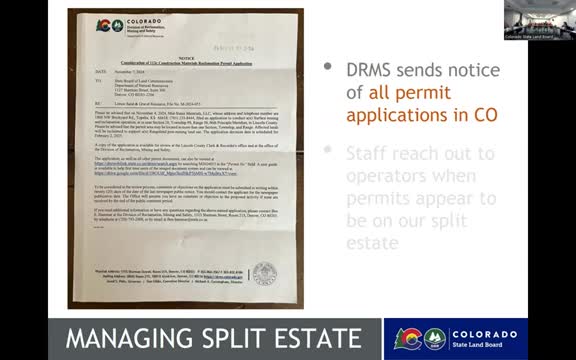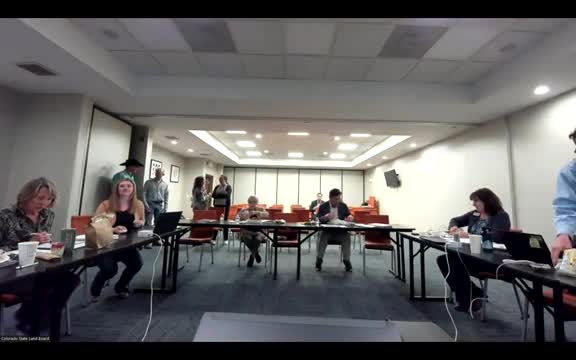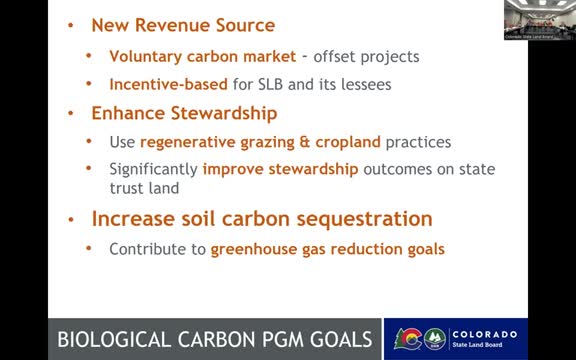Article not found
This article is no longer available. But don't worry—we've gathered other articles that discuss the same topic.

Board approves sand-and-gravel production lease in Lincoln County to Midstates Materials

Board approves demolition and replacement funding for Finch House at Chico Basin ranch

State Land Board approves two carbon project developers and greenlights a pilot grassland carbon rider for Chico Basin lease

